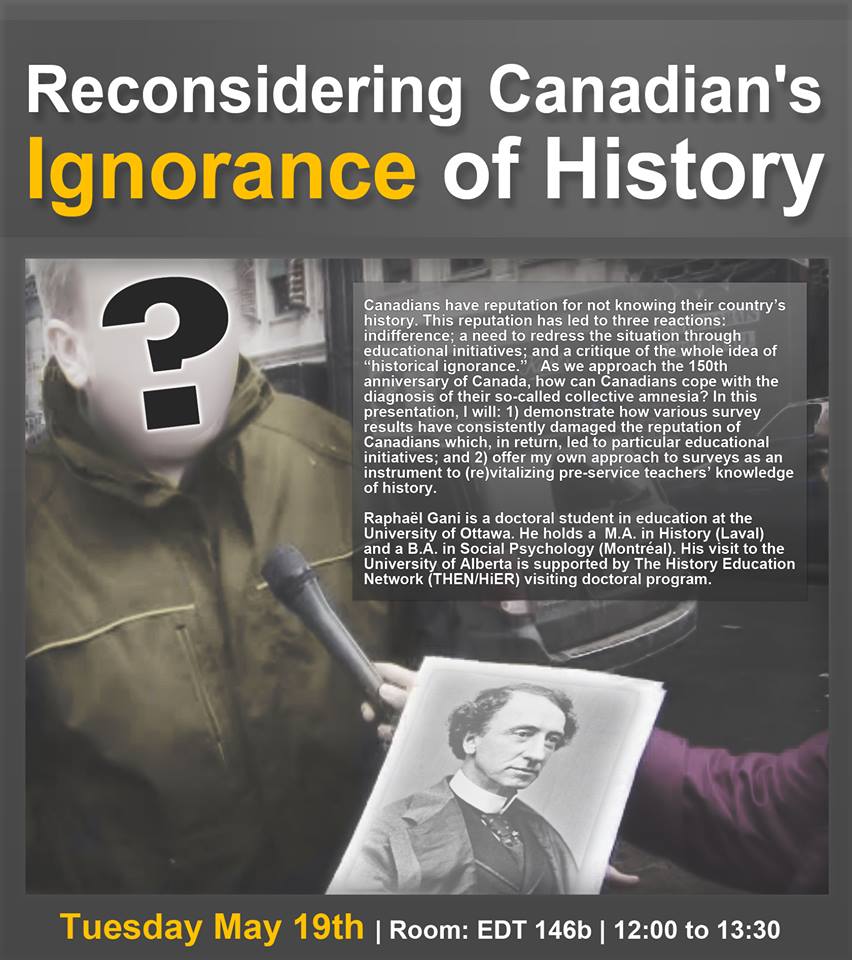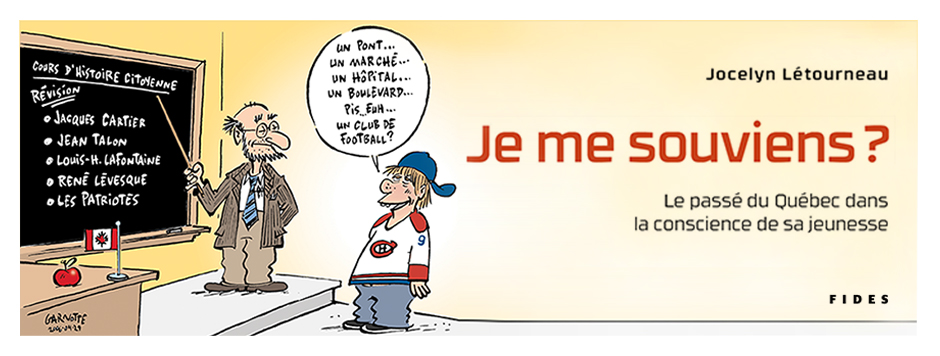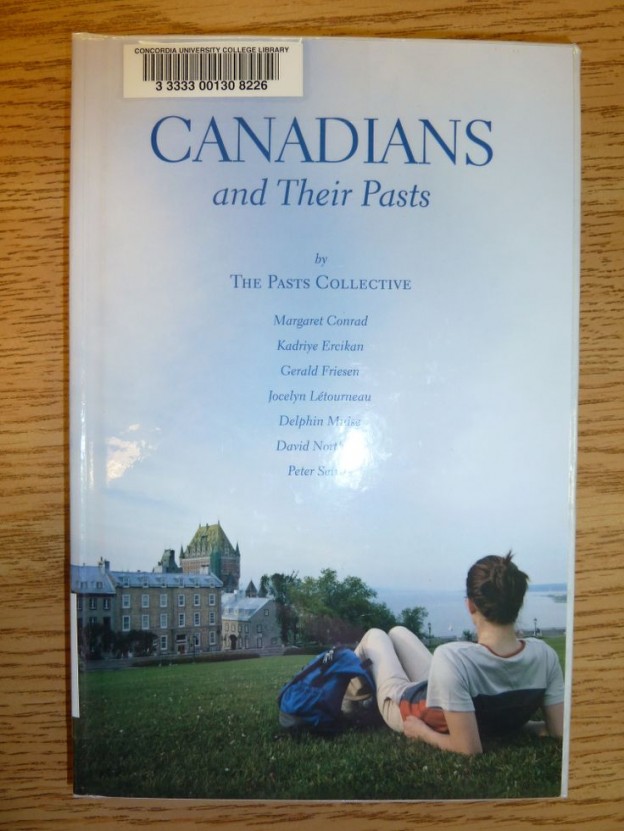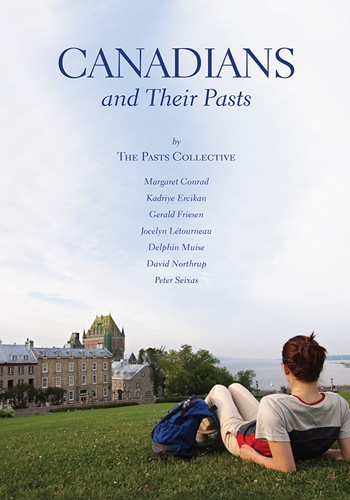
Canadians have reputation for not knowing their country’s history. This reputation has led to three reactions: indifference; a need to redress the situation through education initiatives; and a critique of the whole idea of “historical ignorance.” As we approach the 150th anniversary of Canada, how can Canadians cope with the diagnosis of their so-called collective amnesia? In this presentation, I will: 1) demonstrate how various survey results have consistently damaged the reputation of Canadians which, in return, led to particular educational initiatives; and 2) offer my own approach to surveys as an instrument to (re)vitalizing pre-service teachers’ knowledge of history.
Raphaël Gani is a doctoral student in education at the University of Ottawa. He holds a M.A. in History (Laval) and a B.A. in Social Psychology (Montréal). His visit to the University of Alberta is supported by The History Education Network (THEN/HiER) visiting doctoral program.
Dans: knowledge of history




